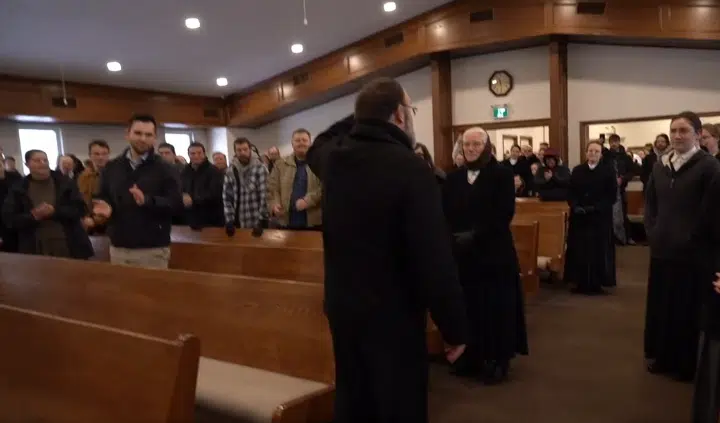
Two Ontario churches have lost their constitutional challenge against the province’s COVID-19 religious gathering mandates.
Aylmer’s Church of God and Trinity Bible Chapel in Waterloo were both charged last spring with violating public health restrictions.
A hearing was held in January at the Elgin County Courthouse in St. Thomas, presided over by Ontario Superior Court of Justice Renée Pomerance.
Lawyers for the two churches argued the province’s COVID-19 restrictions violate Section 2 of the Charter of Rights and Freedoms.
Lisa Bildy, a lawyer for the Justice Centre for Constitutional Freedom, argued evidence shows outdoor restrictions don’t make sense and “the Church of God, which has many acres of space, has many charges for outdoor services.”
Josh Hunter, representing the Ministry of the Attorney General, showed the court a YouTube video taken at a Church of God service in Aylmer where parishioners were inside with no masks and no social distancing enforced in defiance of the province’s gathering limits.
The Church of God and the Trinity Bible Chapel were both charged and faced restraining orders under the Reopening Ontario Act for flouting public health restrictions during the pandemic.
Court records show that in January 2021, in response to a new lockdown, the Church of God “took matters into their own hands” and began holding large-scale, in-person services.
Pomerance concluded the Ontario restrictions on the size of religious gatherings did interfere with the fundamental guarantee of freedom of religion, however she advised such limitations were reasonable and justified in a free and democratic society.
She wrote, the restrictions interfered “with the ability of the claimants to engage in religious activity as a collective in-person congregation. I stand by that finding. I also accept the religious gathering limits had negative impact on the psychological well-being of church members, as chronicled in the affidavit evidence filed with the court.”
Pomerance continued, “Yet, it remains the fact that, despite the claimants’ characterization as such, there was never a complete ban on religious gatherings or religious activity. It was always open to the churches to deliver services to congregants, albeit in a less than optimal fashion.
“Gathering limits imposed a significant burden on religious activity, but they did not prevent it from occurring. During much of the pandemic, churches were at liberty to gather the congregation for outdoor services.”
In her decision released yesterday (Tuesday), Pomerance noted, “Religious institutions were affected, but no more than was reasonably necessary and for no longer than was reasonably required.
“Ontario accounted for the importance of religious activity by allowing greater latitude for religious than non-religious gatherings. Limits on religious activities were less stringent than limits on social events and public performance events.”
Written by Ian McCallum
